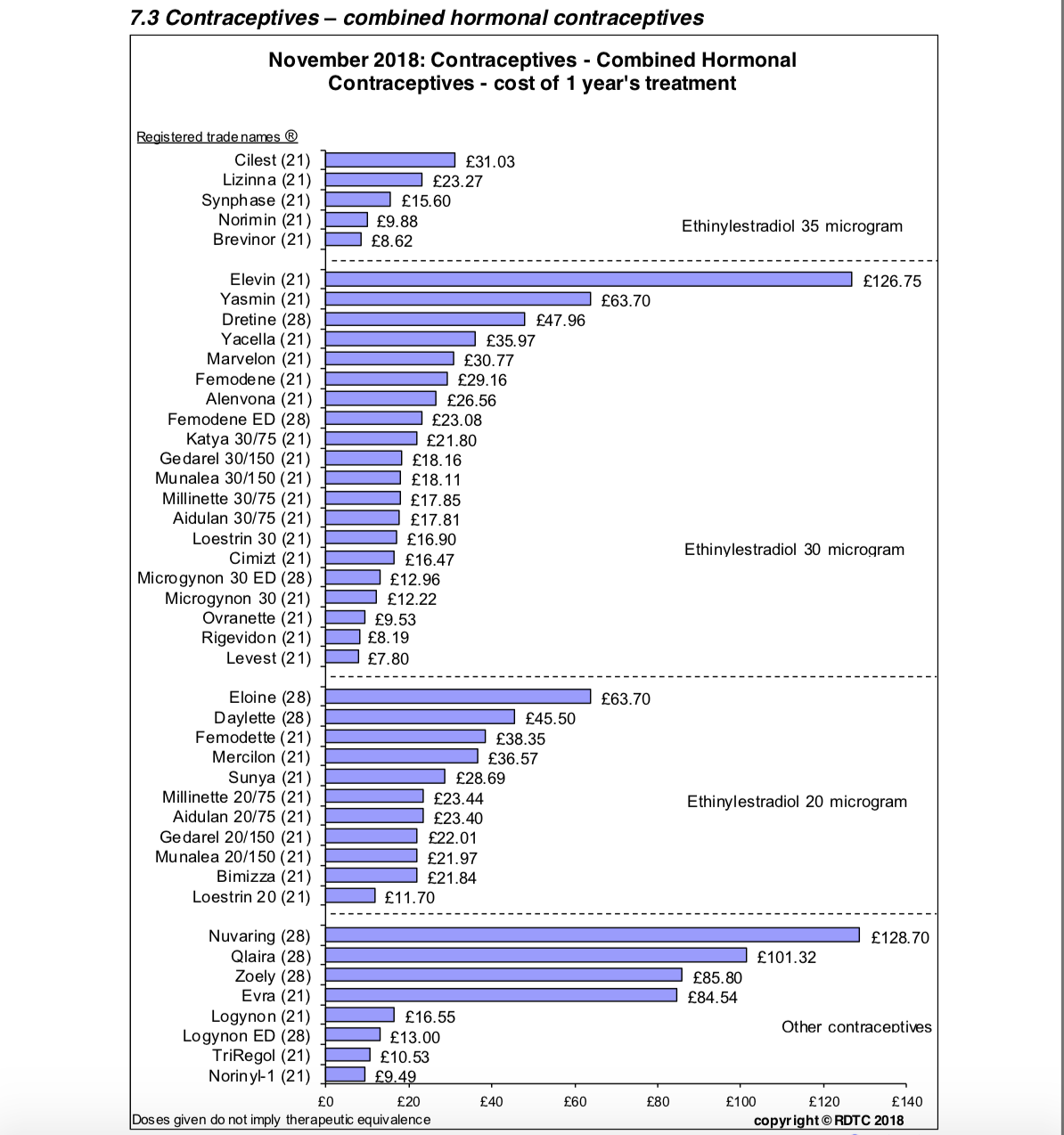Most women will know the struggle. Try a pill for 3 months, mood swings. Try a different pill, spots. And another, headaches. And, repeat. There are so many side effects that need balancing when trying to find a contraceptive pill that works harmoniously with your body, and for some women, there is one side effect that they didn’t expect to consider: cost.
The range of contraceptive pills available to women on the NHS is vast. There are Monophasic, Phasic and Every day pills, each containing different amounts of different hormones, but in the simplest terms, the contraceptive pill prevents pregnancy and according to the New Statesman, two thirds of women ages 20-24 in the UK use this kind of contraception.
It takes lots of trial and error with the pills as each one incurs side effects that can vary from one woman to the next. This is pretty traumatic as you may experience severe breakouts, increased blood pressure and headaches. When you finally find a pill that makes you feel good from the inside and out, it’s a relief to say the least, only for that feeling to be pulled from underneath you, when your GP tells you they can no longer prescribe your pill as its ‘too expensive’, leaving you to land back in the pit of pills, pain and a pile of prescriptions.
Abi Crossman has struggled with acne for years, and began trialling different pills as many made her skin worse. She also had to think about how the pills were affecting her headaches as she suffers badly with those too. After many years, the pill, Yasmin, seemed to agree with her body and she finally settled with this pill. That was until she went back to the GP for a check-up and was refused it.
“I’ve been on loads of different pills, one made me really moody and my skin got worse with some, so we tried Yasmin which is well known for being good for skin. I saw an improvement and I was really happy – I didn’t see any side effects either. Then I went back for my yearly check- up and I was told, “I’ve been told under no circumstances am I to prescribe Yasmin to anyone because it’s too expensive”. She prescribed me another one and I’ve been on it for two months. My skin definitely got worse at first, it’s really up and down at the minute, but I’ll just have to wait and see”, she told me.
In this graph, we can see how much the Yasmin pill, as well as other pills, costs the NHS for a year treatment in 2018.
Whilst is it necessary that the NHS makes changes where possible to save money, it makes no sense to choose such a problematic area to do that.
And it looks as if sexual health services all round are facing budget cuts this year, as information obtained by an FOI by the BBC shows that 151 of councils that responded planned to cut sexual health funding.
The Kernow CCG, who is responsible the planning and commissioning of health care services for their local area, told Truthfal in a statement: “All clinical commissioning groups, including NHS Kernow, are guided by the principles of the NHS Constitution, and among those principles is a commitment by the NHS to provide best value for taxpayers’ money, whilst ensuring people still receive the care and treatment they need to manage their condition.
There are strict regulations governing prescribing medication, and GPs regularly review people’s medication every six to 12 months to ensure it is still providing the support they need. This may include changing the dosage, changing to an alternative medication, or if the person still needs the medication.”
Despite a recent study showing that a third of women in the UK are taking a pill that is not compatible with their body, the NHS are still prioritising cost over well-being.
“There is absolutely no difference between a brand name medication and a generic medicine which has been approved by the regulatory authority, The Medicines and Healthcare Products Regulatory Agency (MHRA). NHS Kernow supports the prescribing of more cost effective regulatory approved unbranded medicines. A person who uses the most cost effective medication is supporting the NHS to reinvest any savings to other treatments.
If someone has not reported any side effects or complications with the branded version, the GP would not expect them to react differently to the unbranded version. GPs work by a code of ethics and would not change someone’s medication if they believed it would affect their health.”
The NHS have advised that anyone experiencing adverse effects from a change in pill should contact their GP.


